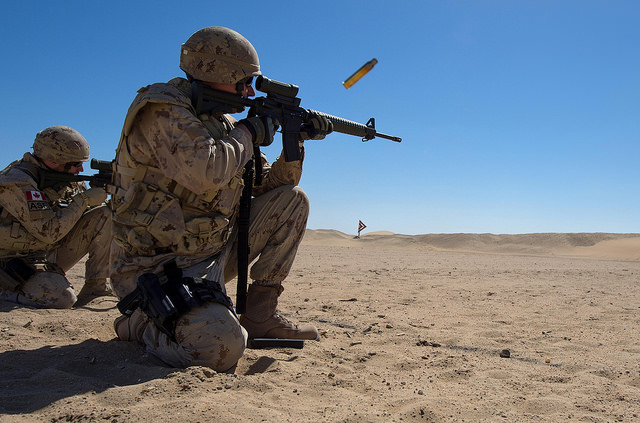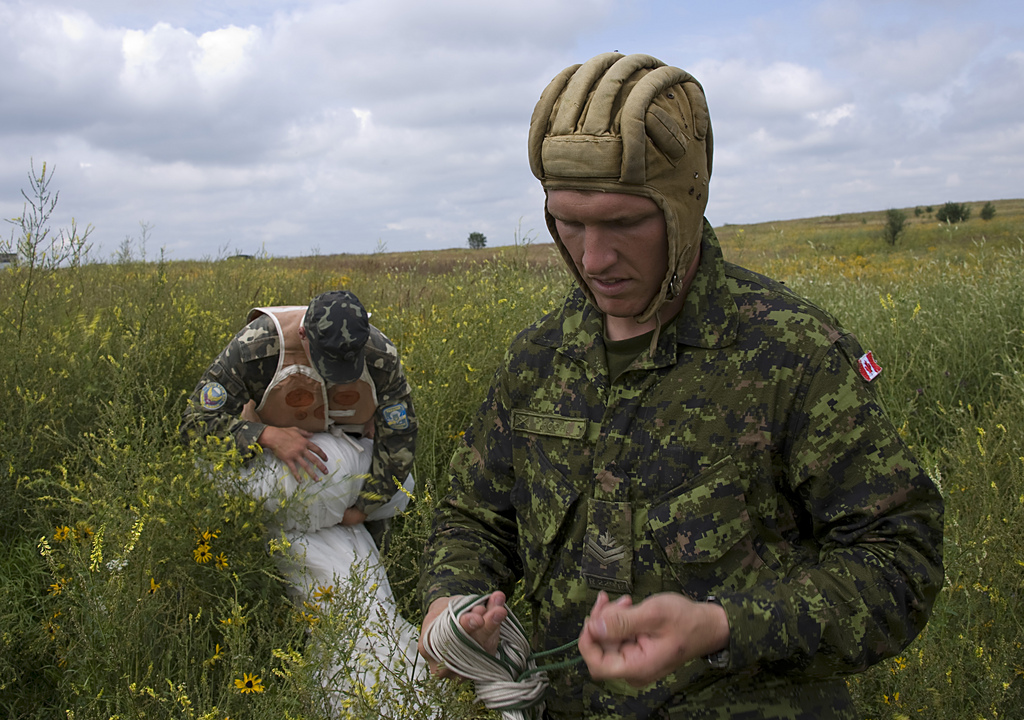Since 2013, a group of Canadian Special Operation Regiment (CSOR) soldiers have assisted in training the Niger Armed Forces in the areas of marksmanship, reconnaissance, and other military skills. As part of the Liberal government’s effort to revamp Operation Naberius, up to 25 Canadian soldiers based out of Valcartier, Quebec will relieve CSOR soldiers and train local forces in the west African country. Soldiers from the French-speaking 1st Battalion, Royal 22nd Regiment, will be deployed two times per year for missions lasting two to three months.
Operation Naberius is Canada’s contribution to the United States-led training plan known as Exercise Flintlock, which assists in training Western African countries in anti-terrorism operations. Canadian Special Operations Command describes the importance of participating in Flintlock exercises as “an excellent opportunity for CSOR to train in an austere environment, while continuing to build interoperability and relationships with allies, and supporting the Government of Canada’s initiatives in the Sahel region.” The objective of Exercise Flintlock is to increase stability among North and West African countries, while combating support for violent extremist organizations, such as Islamic militant group Boko Haram.
Boko Haram caught the world’s attention after abducting 276 girls from a Nigerian village in 2014. The group, who has pledged allegiance to the Islamic State, is based in northeastern Nigeria but remain active in neighbouring countries like Cameroon, Niger, and Chad. CAF soldiers have been training forces in the Niger city of Diffa, which is five kilometers from the Nigeria border making it a popular target for Boko Haram insurgents. In 2015, CAF soldiers came dangerously close to Boko Haram fighters, as the group stormed a prison in the city of Diffa. Boko Haram’s insurgency in Northern Nigeria left approximately 800,000 citizens displaced, most of which find themselves caught in the middle of fights between government forces and the militant group. According to the Star, Boko Haram has killed roughly 15,000 people, forcing over two million from their homes throughout a seven-year insurgency.
Canada’s contribution to Exercise Flintlock began under the previous Conservative Government after calls from the international community to assist African countries battling Islamic militants. Department of National Defence spokesmen Dan Le Bouthillier said that the government at the time was determined that special forces were “best-suited for this type of capacity-building operation.” However, Le Bouthillier would not explain the reasoning behind switching CSOR for regular army soldiers.
In August, Canadian Defence Minister Harjit Sajjan travelled to Africa on a fact-finding mission to provide cabinet with better advice on current peacekeeping missions in the region. During his trip, Sajjan made stops in Ethiopia, Kenya, Tanzania, and the Democratic Republic of Congo. His trip comes after widespread speculation surrounding the possibility of deploying Canadian troops to assist in ongoing operation in Mali, and the Central African Republic.
Operation Naberius highlights the beginning of a potential shift towards Canada’s increased involvement in counter-terrorist operations in African countries. Challenges in stabilizing the region arise as increasing volatility could be attributed to the demographic growth. According to a United Nations report, “More than half of global population growth between now and 2050 is expected to occur in Africa.” Indeed, a large influx of youth with no economic prospects increases the likelihood for a potential hotbed for radical ideologies in African countries. Furthermore, with a projected increase in population to occur throughout Africa within the next hundred years, Canada could be called on more to assist in the continent’s French speaking countries.
Photo: Canadian soldiers honing their shooting skills on the firing range in a desert environment (2015) by Canadian Forces Combat Camera via Flickr. Photo courtesy of the Canadian Forces Combat Camera, Department of National Defense.
Disclaimer: Any views or opinions expressed in articles are solely those of the authors and do not necessarily represent the views of the NATO Association of Canada.




